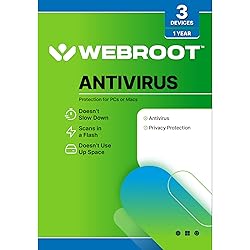VPN vs Antivirus: Do You Need Both?
VPN vs antivirus is a comparison that often arises for anyone looking to bolster their cybersecurity. With the rise in online threats, privacy concerns, and cybercrime, knowing how each of these tools works—and whether you need both—can make a significant difference in protecting your data. Let’s break down what VPNs and antivirus programs do, their differences, and why a combination of both might be crucial for complete online security.
What Does a VPN Do?
A VPN, or Virtual Private Network, is a service that encrypts your internet traffic and routes it through servers in different locations worldwide. This creates a secure, private tunnel for your data as it moves between your device and the internet. The primary benefits of using a VPN include:
– Protecting Your Identity: By masking your IP address, a VPN helps keep your identity and location private from websites, ISPs, and potential hackers.
– Securing Public Wi-Fi: When using coffee shop or airport Wi-Fi networks, a VPN defends your data against eavesdroppers who might intercept your traffic.
– Bypassing Geo-restrictions: VPNs often allow users to access websites and services not available in their country, enhancing internet freedom.
However, it’s vital to understand that a VPN does not directly shield your device from malware, viruses, or malicious software.
How Antivirus Software Works
Antivirus software is designed to detect, block, and remove malicious programs that can infect your computer or smartphone. This includes viruses, ransomware, spyware, phishing attempts, trojans, and more. Key features of modern antivirus solutions typically include:
– Real-Time Detection: Scans files and programs as they’re downloaded or opened to catch threats immediately.
– Automated Updates: Regular updates ensure the software can recognize the latest threats.
– System Scanning: Users can schedule full or quick scans of their system to identify hidden malware.
In essence, antivirus programs are your last line of defense when it comes to securing your physical device and data from malicious attacks.
VPN vs Antivirus: Key Differences
Understanding the VPN vs antivirus debate comes down to recognizing their unique functions:
– VPNs focus on privacy and safe internet connections. They guard your web traffic but cannot scan your system for malware.
– Antivirus concentrates on identifying and removing threats already present or attempting to enter your device.
Neither tool is a complete substitute for the other. A VPN won’t stop you from downloading a file infected with a virus, just as antivirus software can’t prevent your data from being intercepted if you use unsecured Wi-Fi.
Do You Need Both VPN and Antivirus?
Given the distinct roles both tools play, their combined use offers the strongest security posture:
Complementary Protection
Utilizing both a VPN and antivirus creates overlapping layers of security:
– Privacy Shield: VPN keeps your online activities hidden, even from internet service providers and hackers.
– Threat Defense: Antivirus monitors files and apps for suspicious behavior, protecting against malware, ransomware, and phishing attacks.
This layered approach significantly reduces your risk of falling victim to cybercrime, whether through hacking, identity theft, or malicious downloads.
Modern Cybersecurity Needs
Cyber threats have evolved. Attacks are more sophisticated, targeting both data in transit (intercepted during online activity) and at rest (stored on your device). Only by using both a VPN and antivirus can you effectively mitigate current threats.
What About All-in-One Cybersecurity Suites?
Some companies now offer bundled solutions that combine VPN vs antivirus features in one package. These can be convenient but always check independent reviews and certifications to ensure the software doesn’t compromise on the strengths of either tool.
Conclusion: Best Practices for Online Security
Choosing between a VPN and antivirus is a false dichotomy—both are essential for comprehensive cyber defense. Install a reputable antivirus program for local device protection and a trustworthy VPN for online privacy. Remember, cybersecurity isn’t about relying on a single tool, but about implementing multiple layers that adapt as threats evolve. Protect your devices and your data with both, and stay one step ahead of cybercriminals in today’s digital world.


